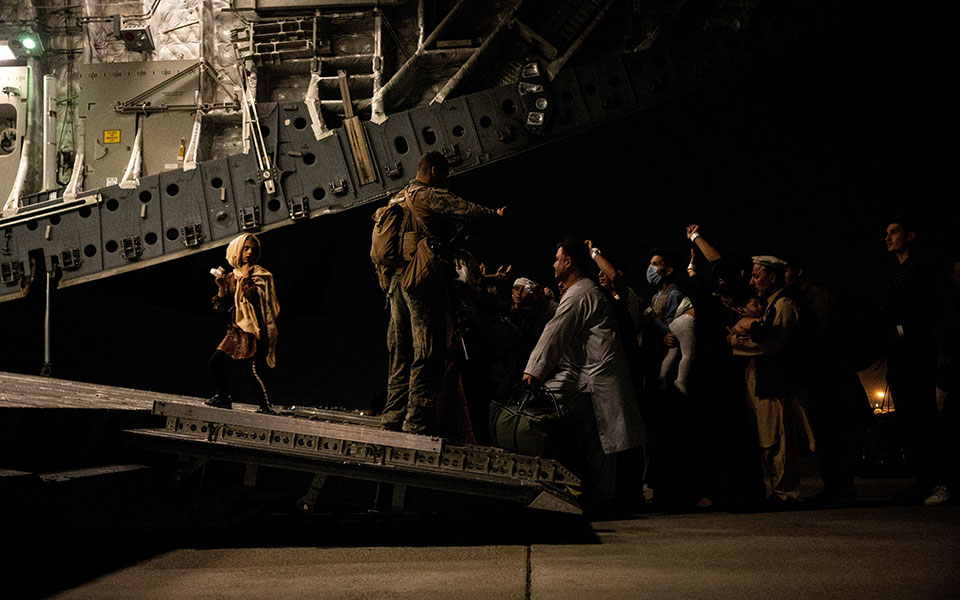
Taliban declared today a public holiday in honor of the first anniversary of their return to power in Afghanistana year marked by a strong backlash against women’s rights and a deep humanitarian crisis.
AT August 15, 2021thanks to the withdrawal of US and NATO troops after 20 years of military intervention in the country, fundamentalist Islamists captured the capital without a fight Kabulat the end of a nationwide blitz against government forces.
“We fulfilled the obligation of jihad and liberated our country,” sums up Niamatullah Hekmata Taliban fighter who entered Kabul that day, just hours after the ousted president fled the country. Ashraf Ghani.
The chaotic withdrawal of foreign troops continued until August 31when tens of thousands of terrified civilians rush to the capital’s only airport to leave the country on any available flight.
Impressive images of crowds of people storming planes parked on an airport runway, climbing on top of them, or dangling from a US Army cargo plane about to take off are etched in memory.
Other than declaring today a public holiday, no official anniversary celebrations have yet been announced, but state television has announced that it will be broadcast special programswithout further explanation.
A year later, Taliban fighters express joy that their movement is now in power, and aid agencies, for their part, express concern that half 38 million inhabitants countries are facing extreme poverty.
“When we entered Kabul and when the Americans left, those were moments of joy,” continues Niamatullah Hekmatnow a member of the special forces and assigned to the protection of the presidential palace.
But for ordinary Afghans, and especially for women, the return of the Taliban has greatly increased the hardship.
Very quickly and contrary to their initial promises, the new masters of the country basically returned to ultra-conservative interpretation of Islam this marked their first time in office from 1996 to 2001, severely infringing on women’s rights.

“They took everything from us”
Women are prohibited from visiting many government offices and are prohibited from traveling alone outside their city limits.
In March, the Islamists girls’ high schools and colleges were closed againjust hours after their long-announced reopening.
And in early May, the Taliban supreme leader ordered women to wear full-coverage clothing in public, preferably veil.
“Since the day they arrived, life has lost its meaning,” she says. ok, emaila resident of Kabul. “They took everything from us, even penetrated our personal space,” he continues.
The day before yesterday, on Saturday, in Kabul, Taliban militants violently dispersed, hitting with rifle butts and shooting into the air, about 40 women protest claiming their rights to work and education.
Although Afghans acknowledge the decline in violence since the end of the war since the Taliban came to power, many of them are suffering from an acute economic and humanitarian crisis.
“People who come to our stores complain so much about the high prices that we dealers even begin to hate what we do,” says Nur Mohammaddealer Kandaharin southern Afghanistan, the historical birthplace of the Taliban and their center of power.
For Islamist militants, however, the joy of victory overshadows the current economic crisis. “We may be poor, we may face hardships, but the white flag of Islam will now fly forever in Afghanistan,” says one who guards a public park in Kabul.
AFP
Source: Kathimerini
Anna White is a journalist at 247 News Reel, where she writes on world news and current events. She is known for her insightful analysis and compelling storytelling. Anna’s articles have been widely read and shared, earning her a reputation as a talented and respected journalist. She delivers in-depth and accurate understanding of the world’s most pressing issues.